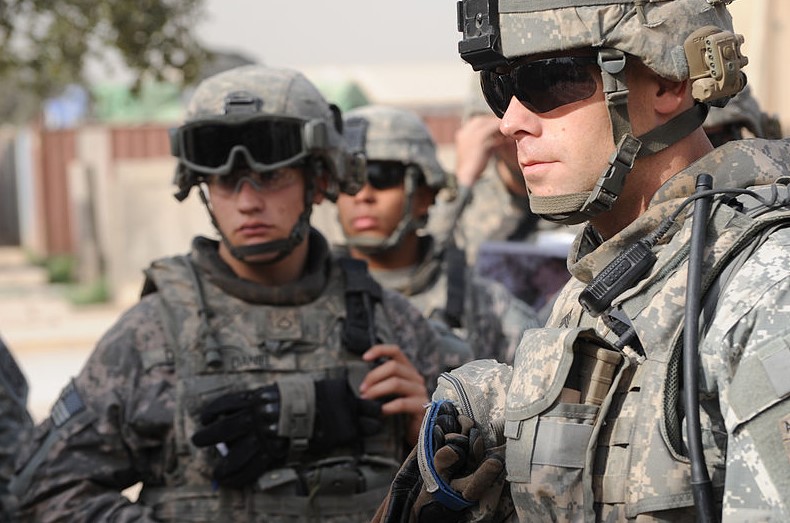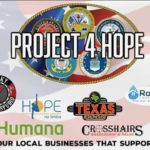by Britta Reque-Dragicevic
This first appeared in Britta Reque-Dragicevic’s blog “Life After War” on August 3, 2013, and is republished with the author’s permission.
_________________
There’s a perception out there that it’s not okay to express sadness, fear, uncertainty, loss, or guilt. They make you vulnerable, they leave you exposed, they give your power away, right? Anger is okay, though. Anger represents a form of power, though it often is a cover emotion for all of the ones that aren’t acceptable.
For many combat vets, rage is the only “safe” place to funnel the deep emotions of war. Blind rage — that boils over for no apparent reason or the tendency to have much stronger reactions to things that normally wouldn’t bother you — is often the soul crying out to release what it’s holding inside. The problem is rage can lead to violence and creates distance in relationships when what you need most are acceptance and love.
Lashing out when your soul is wounded is a natural reaction to a sense of being out of control over your life or past.
Anger, rage, and lashing out are challenging, but normal effects of war. The tricky part is that loved ones have a hard time understanding where that deep anger is coming from and why you’re directing it at them. (And you may not be able to explain why either.)
Many combat veterans hide just how vulnerable and uncertain they feel after war. The questions, the loss, the grief, the way they miss war as much as they hate it, the not fitting in anymore, the strange gaps that exist in relationships at home — it’s convoluted and messy, and no one wants to admit to being a mess. Because, god forbid, you go to war, kill people, nearly get killed, experience the sudden loss of friends to intentional violence, feel both immense power and utter powerlessness at the same time, have shifting perceptions as to what the whole point of it is, escape death, then come home to a silent, blessedly mundane life where you’re supposed to forget all that happened and just be happy making money, getting your education, paying the mortgage — and, no, you wouldn’t have reason to be a bit angry, would you?
Deep breath
The point is rage is normal. And it’s more a symptom of other unexpressed emotions than of true anger itself. Yes, there is real anger involved. Anger over what you’ve lost, over how you have to fight with the VA for your rights, anger over what you did or didn’t do, anger over being so fucked up now, and anger at yourself for not being stronger than you’d thought you’d be. Anger has a real and valid place. But sorting it all out can seem too much work and too exhausting, especially when you don’t know where to begin and no one really wants to hear about this dark side of you anyway, right?
So, what are you supposed to do? How do you handle rage and difficult emotions after war?
Recognize that you haven’t become a “monster” – your spirit needs attention and it’s acting out to get you to realize that. You can’t emerge from war unscathed. It has changed you. It’s time to accept that you’re not who you used to be. And there’s no going back. The person you are now is someone who is going to become someone new, but the war will always be a part of you. It’s time society woke up and realized that the expectation that you would be unchanged by something as powerful as war is both absurd and stifling. That expectation prevents you from healing. Because if no one acknowledges that there’s something to be healed, the healing will not occur. Don’t let this belief do that to you.
It’s your life and while you may feel lost, you are still the only one who can choose to set upon a path toward healing. No one is going to do it for you. There are people, services, organizations, books, therapists, and alternative healing practices out there — but unless you choose to connect and explore possibilities for healing, none of them will do you any good. What works for some, may not work for you. But there is a path for you if you keep looking.
Healing vs coping. I believe the human spirit is capable of experiencing healing and regeneration. Freedom and growth come when we change our thoughts and embrace new beliefs. But there are some aspects of war wounds that may never fully disappear and may need long-term methods of coping and adapting. While managing PTSD symptoms may be your first priority, the underlying goal is to find the healing your soul needs in order to create a new sense of wholeness and well-being.
Honor your own spirit as much as you’d honor a fallen brother. You know how to do this. Most likely you took part in memorial ceremonies and special acts of remembrance that honored the ones you lost. You’ve felt that deep respect for them. What you need now is to give that kind of respect, empathy, and grace to yourself. Your wounds are honorable, natural, and they deserve respect. I know if you’re hurting, “honor” is the last thing you’re thinking about. You’re just trying to cope, to numb out, to ease the pain so you can function and get through another day and night. What I’m talking about here is really an attitude. An attitude where you give yourself a break, you acknowledge your pain is real and valid, you recognize and respect your mind, body, and soul for what it’s endured and for how it’s protected you (even if you hate the methods it’s chosen) – and you start toward healing from a place of reverence and respect for your life.
Break the silence. Share your story. Find a safe place where you’ll be accepted and not judged no matter how devastating or traumatic your story is. I know it’s not easy. Your fellow warriors know where you’re coming from, and while they can provide you much-needed camaraderie and support, they may not be able to lead you down a healing path, unless they’ve walked the path ahead of you. You need someone with deep spiritual wisdom, compassion, and a strong belief in you. Someone willing to carry your story with you while holding you to your own ability to heal. You need to confide. Lay it all out. Let that person hold you in a healing embrace and trust that your story won’t break them. Words are powerful. Stories that are kept inside often lose power when they are expressed in words. So take a chance and share your story.
Find a method to express what you’re carrying inside. Sharing your story through words is foundational to healing, but you also need to express how you feel about your story and what you’re carrying inside. (Don’t be put off by all this talk of “feelings” — the fact is, you have them and they’re giving you trouble.) Stories are made of facts, actions, and events. They tell what happened to you or what you did, they don’t necessarily express how you feel about it. Those feelings are going to come up again and again. They need to be validated, expressed, and released. But you don’t have to use words. Creative arts, music, gaming, sports, working out, volunteering, and spending time in nature — can all become part of your healing process. The point is to find something non-destructive that you can turn to whenever you need to release pent-up thoughts and emotions. Art and creative writing are particularly powerful because you use your hands and heart to bring something into being. You don’t have to be an “artist” or a “writer” to try painting, sculpture, woodcarving, drawing, or storytelling. The goal is to pour the energy of your emotions into the form.
When blind rage emerges, breathe. Realize where it’s coming from, disengage from the person you’re with, breathe in, breathe out. Thoughts run wild and irrational when rage flows, breathe. When you’ve calmed a bit, have a look at what’s running through your mind. Try to replace those negative thoughts with more logical, factual ones. If you know your rage is coming from a place that needs healing, you’ll start to see your reactions in a different light. The dots will start to connect. You may still need to learn some anger management techniques to find ways to cope, but at least you’ll have a better idea of where that rage is coming from and why you’re experiencing it.
The people around you won’t know why you’re angry unless you find a way to explain it to them. Print off this article and share it with them or recommend this site to them to help them understand where you’re coming from. (If you are a family member, or want your family member to talk with me, I’m more than happy to do so.) When people know that anger comes from a place of unresolved pain, they are far more understanding and see you in a different light. Not to be pitied, but understood. Unfortunately, you may have to be the catalyst to help them gain that understanding. But if you love them, they deserve the chance to realize what’s going on with you.
I know this post is getting long, but the one thing I didn’t mention is crying. Tears are a natural form of emotional release. Children and most women know this instinctively. The concept of men crying gets all tied up in cultural beliefs and expectations of what it means to be a man. But crying is a human response of the heart and spirit. And whether you are okay with crying in front of others or not, it really is okay to cry. If you’re embarrassed, cry in private. If you’re worried that once you start crying you won’t be able to stop, don’t worry. You will when your heart has released everything it needs to. You’ll breathe again, you’ll smile again. We’re made of energy, and crying is a form of releasing energy.
Rage, and difficult emotions — they’re part of the process. Don’t let them define you. Claim your right to heal.
If you want to confidentially share your story, vent, get things off your chest, and receive soul-level support, please reach out. Life is too short to walk your path after war alone.
______________________

Buy Me A Coffee
The Havok Journal seeks to serve as a voice of the Veteran and First Responder communities through a focus on current affairs and articles of interest to the public in general, and the veteran community in particular. We strive to offer timely, current, and informative content, with the occasional piece focused on entertainment. We are continually expanding and striving to improve the readers’ experience.
© 2024 The Havok Journal
The Havok Journal welcomes re-posting of our original content as long as it is done in compliance with our Terms of Use.



